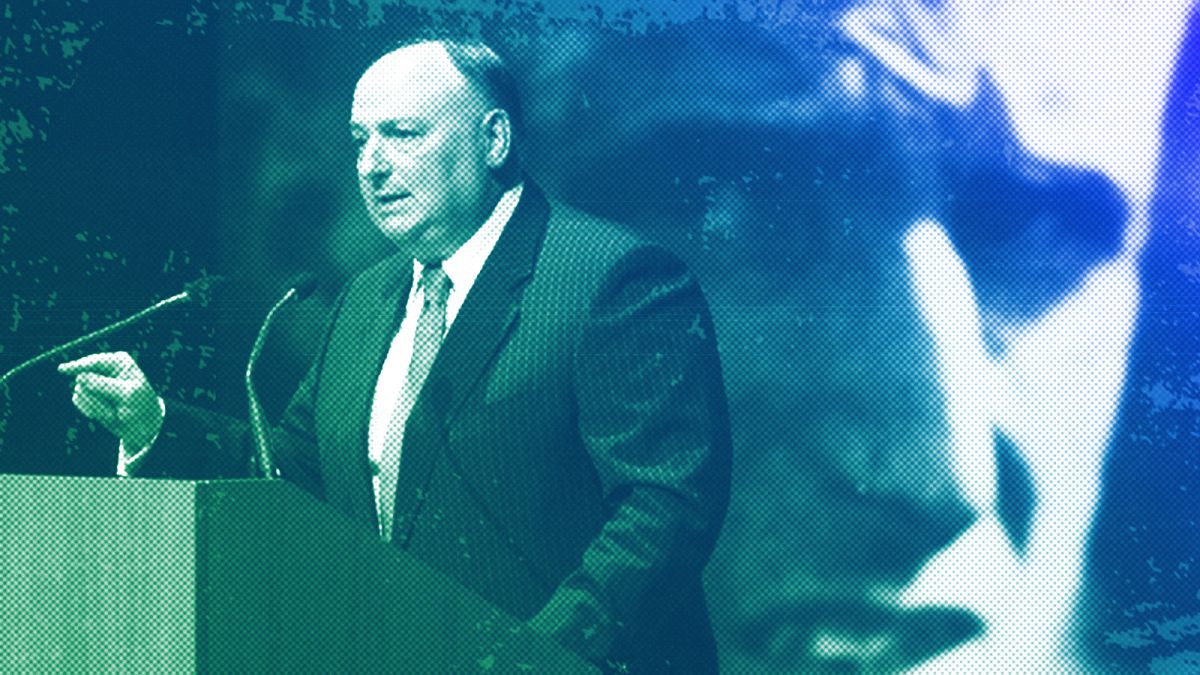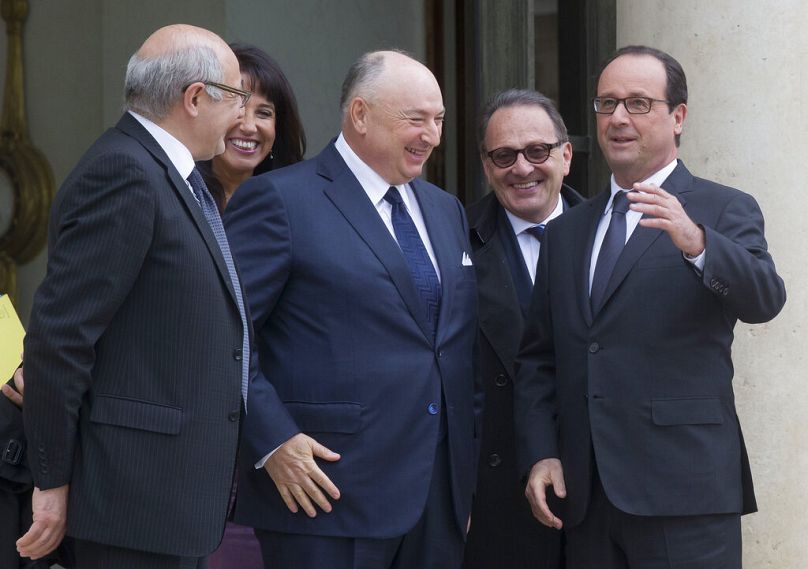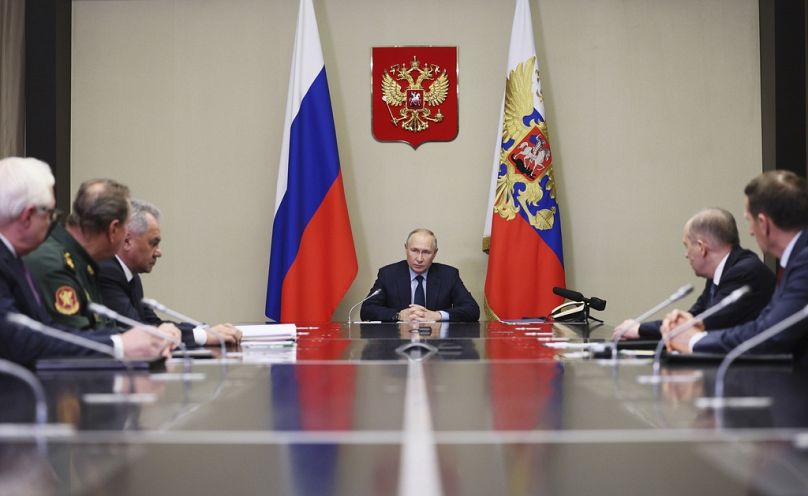Dr Moshe Kantor's case clearly demonstrates a cleanup of the list is long overdue. Those who deserve sanctions should remain, while those who were caught up in the overly tenacious initial compilation should be removed, Eldad Beck writes.
Since the very beginning of the Russia-Ukraine war in February 2022, the European Union has taken many measures and posed sanctions against Russia and those deemed to be “supporting, financing or implementing actions” in the war effort.
Unfortunately, in a hurried approach, some of the bureaucrats who put together the list and the criteria for applying personal sanctions against hundreds of individuals took what now appears to be a scorched earth policy. On many occasions, they seemingly relied on simple Google searches and Russia’s rich list, much of which would not have stood up in court.
In fact, in April, this was proven true.
Two individuals, Mikhail Fridman and Petr Aven, successfully proved before the European Court of Justice that the European Council had not presented enough evidence to establish that they met the necessary bar of being involved in efforts that “undermine or threaten the territorial integrity, sovereignty and independence of Ukraine”.
Now, another hearing on one of the most egregious cases to date could deal another blow to the sanctions regime.
Hasty process and apologies
On 19 June, the General Court, the Court of Justice of the European Union, held a hearing on the case of Dr Moshe Kantor, former President of the European Jewish Congress (EJC), who stepped back from his position following the Council's decision to include him on the list of individual sanctions in 2022.
Kantor is the only democratically elected leader of a European minority community who was included on the individual sanctions list. In his role as a Jewish leader, he met with many European heads of state, European decision-makers and opinion-shapers.
For his activities, the promotion of tolerance and fighting against xenophobia and antisemitism, Dr Kantor received, over the years, state honours from, amongst others, Poland, Ukraine, Italy, Romania, Belgium, Austria and France.
Ironically, French President Emmanuel Macron awarded Kantor with the title of Commandeur de la Légion d'Honneur only a few weeks before France voted, as a member of the EU Council, to sanction him because of Kantor’s presumed economic ties with the Kremlin.
During the hearing at the EU Court, Kantor's defence team stressed that the whole process against Kantor was born in sin and haste and created an “exceptional situation”, in which Kantor is sanctioned despite the fact that he has been living for decades away from Russia, has dedicated his life for the fight against antisemitism, promoting tolerance and ensuring the security of Jewish communities in Europe.
Moreover, insisted the defence, the sanctions were renewed time and time again since September 2022 with an “incomprehensible insistence” despite all evidence provided to the Council, showing that Kantor ceased all his business activities even before the Russian annexation of Crimea in 2014.
After the EU Council legal team made its case, clearly exasperated, one of the judges asked again for evidence for the “mechanisms of benefit” between Kantor and Russian President Vladimir Putin, a crucial element in the case for sanctions. The Council’s lawyers responded that all the evidence had previously been presented and were unable or unwilling to add anything new.
To demonstrate another problematic part of the accusations against him, Kantor’s legal team brought up the fact that the first official file against him stated that he had “Jewish-Russian” nationality, a highly problematic and discriminatory appellation used by the Nazis against Jews in the 20th century.
Kantor was the only person on the EU sanctions list whose religious affiliation was referred to. This “mistake” brought the President of the European Council, Charles Michel, to apologise to Kantor.
A letter signed by Michel0s Head of Cabinet, Frederic Bernard, dated 27 July 2022, explains: “We sincerely regret the error that has been made by the responsible service with regards to your nationality in the evidence pack and has been rectified. The correct version of the document is enclosed herewith.”
While this was the most controversial, it was not the only error in the case against Kantor.
Paid articles as evidence?
According to numerous articles and experts who have assessed the working files of some of those sanctioned, the evidence compiled was “slipshod”, “shaky” and “embarrassing”.
The document used as a basis to sanction Kantor in 2022 contains only 64 pages and includes just eight articles and websites, six of which are machine-translated versions of Russian-language originals. The bulk of the packet consists of screenshots of entire articles, with relevant passages highlighted in yellow.
Two of the articles, on the Russian web portal Rambler and outlet Vecherniy Murmansk, are labeled on the websites as an “advertisement” or “paid advertisement”, a description that was not included in the evidence packet. It is unknown who paid for these advertisements.
Some of these articles are what can only be described as “fake news” pieces, which antisemitically accused Kantor of using his position as a Jewish leader to distort the memory of the Holocaust and minimise antisemitism for personal gain.
Accepting these types of articles at face value, knowing they are paid advertisements on sometimes obscure websites by unknown figures, can themselves be construed as antisemitic.
The file also mistakenly lists Kantor as a shareholder of Acron, a Russian-based mineral fertiliser producer, instead of as an ultimate beneficiary.
On the point of Kantor’s relationship with Putin, he has not held any business position in Russia for 30 years and has devoted all of his time and efforts to leading the European Jewish community over the last 20 years. No other person on the list is comparable to him in these respects. All the other people listed as “businesspersons” have either business positions or capital holdings in Russia.
The Court has even annulled the Council’s decision to retain a businessperson on the sanctions list who left his position a few months before the renewal, as was the case for Alexander Shulgin last September.
As Kantor’s legal team made clear, contrary to many other individuals on the sanctions list, Kantor was never invited to the numerous business forum meetings organised by the Kremlin for leading businessmen in Russia.
In the hearing, Kantor’s legal team asserted that the Council’s supposed case is simply based on the idea that one cannot be wealthy and of Russian origin without being a “leading” businessperson involved in a sector providing a substantial source of revenue to Russia.
Kantor's lawyers spoke about a “real blindness” of the Council in front of facts and of “impossible scenarios,” accusing Kantor of minimising the dimension of antisemitism in Russia or disproportionally promoting Russia´s role during WWII for personal gains
The EU Council's legal team admitted several times that mistakes were made in the preparation of Kantor´s sanctions file regarding his nationality and the claim that he was a shareholder of the Acron group.
The question that requires answering is why Kantor was sanctioned in the first place and remains on the list.
Old allegations weaponised
Some have argued that his tireless campaigns for the security of Jewish communities, against antisemitism, as well as fighting Holocaust distortion and denial over the last 20 years, have fueled resentment against Kantor, and some old and baseless allegations against him are now weaponised.
The jurist Regis Bismuth, professor at the Sciences Po Law School in Paris and Director of Studies of the French Branch of International Law Association (ILA) and an expert on EU sanctions sees a structural failure in the way the sanctions list was prepared, and in the case of Kantor in particular.
“I think that it is interesting to place this case in the larger background of how sanctions are adopted by the EU Council. In 2022, hundreds of people were listed on the EU restriction measures list. Of course, some of them are deeply connected with the Russian regime, but not all of them,” Professor Bismuth said.
“The files on the first group of sanctioned individuals were completed in just a few days. We do not have information on how files justifying individual sanctions were made. We have to keep in mind that many people were put on the list very quickly and often on the basis of information gathered from newspapers, sometimes Russian publications that are not completely reliable, or from social media.”
“With Dr Kantor, there is a clear manifest error of assessment. What is particularly shocking about the case of Dr Kantor is that the file is relatively empty, and he appears to have been listed on the basis of his alleged wealth”.
Regardless of the motivations for placing and maintaining Kantor on the sanctions list, the public hearing at the General Court laid bare many problems of the individual sanctions regime.
That is why a cleanup of the list is long overdue. Those who deserve sanctions should remain, while those who were caught up in the overly tenacious initial compilation should be removed.
The EU sanctions regime has suffered some recent blows. Disassociating itself from those who clearly have no place on the list would be a good start in its reputational restoration.
Eldad Beck is an Israeli journalist.
At Euronews, we believe all views matter. Contact us at view@euronews.com to send pitches or submissions and be part of the conversation.














